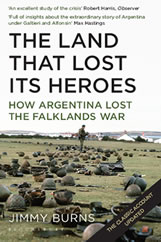Whatever the outcome of the Scottish referendum, the campaign can be rightly held up by the British to the rest of the world as an example, showing that when it comes to democratic process, no one does it better in this stage of history.
Of course colonial Britain did not cover itself in glory in the 20th century when dealing with independence movements from Ghandi to Kenyatta, but much as Alec Salmond might bark about the alleged bias of the BBC, he knows he has been incredibly privileged in having good journalism divided between Yes and No and a British prime minister negotiate the terms of the referendum in the first place, with the campaign on both sides showinng an extraordinary respect for the rules of civilised engagement which has seen no violence worthy of note .
Indeed Cameron as British prime-minister and Scottish Labour MP’s campaigning as Better Together have fallen over backwards to say how much they love the Scots and Scotland and how they want it remain and play an important part of the UK, like unfaithful husbands begging their wives to forgive , forget, and keep the marriage together, for the sake of themselves and their children.
Britain both north and south has shown extraordinary political maturity, with daily examples of reasoned comment and reporting on TV, radio, and in the broadsheets, and young first time Scottish voters probably better educated in the nuances of reasoned arguments for and against a major constitutional shift that any teenagers in the world.
All this is something, by contrast, that the current Catalan issue seems to be lacking. There has been no referendum, because there has been no negotiation, let alone reasoned debate. At present hard-line republican pro-Independence Catalans and the similarly intransigent members of the ruling PP party mirror each other, in an analogy now sadly popularised, in so far as two trains at similar high speeds hurtling towards each other on the same track, destined to collide.
Elements on both sides- so far thankfully so far in a minority I believe- potentially inhabit the kind of dangerously emotional political territory between left and right wing nationalisms that provoked and fuelled the Spanish Civil War. I have heard from the lips of seemingly perfectly intelligent members of the ruling Populist Party that the Madrid government has already a contingency plan for the imposition of direct rule on Catalunya were a referendum on independence to go ahead on 9th November, in defiance of what is expected to be a Supreme Court ruling that it is unconstitutional.
Meanwhile only last week , just twenty-four hours after over half a million Catalans had marked their national day with a peaceful demonstration in Barcelona demanding their right to vote in a referendum on independence, new graffiti appeared in the streets of the nearby popular Catalan seaside town Sitges warning tourist to either respect the independent movement’s ‘social revolution’ or ‘go home’. Catalan friends insist that such graffiti is unrepresentative and nowhere else in Spain enjoys such a tolerant, multicultural environment. I have no plans so far to abandon my house in Sitges- but I could do with less of the mounting political stress I feel whenever I go there to take a break from London.
In fairness to the Catalans, a huge majority have been extraordinarily self-disciplined as a community when it comes to mass protests on a very controversial subject. However the phoney war between Barcelona and Madrid could turn nasty with violence generating violence in degenerating cycle which will have the rest of Europe wondering what to do with one of its member states, when the word democracy has become a subject of bloody dispute.

